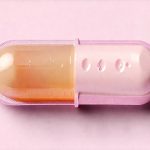Hormonal birth control is an incredibly common part of life for many individuals assigned female at birth, offering reliable contraception and often used to manage various conditions beyond pregnancy prevention. However, alongside the benefits, a growing number of people are reporting experiencing digestive issues while on hormonal birth control – ranging from mild bloating to more significant problems like Irritable Bowel Syndrome (IBS)-like symptoms. These experiences aren’t always readily acknowledged or discussed, leaving many feeling confused and frustrated when their gut health seems to change after starting, switching, or stopping contraception. It’s vital to understand the complex interplay between hormones, the microbiome, and the digestive system to begin navigating these challenges effectively.
The gut-hormone connection is far more profound than many realize. The gastrointestinal tract possesses its own nervous system – often referred to as the “second brain” – and interacts heavily with hormonal fluctuations. Estrogen, in particular, significantly impacts gut motility (the speed at which food moves through the digestive system), permeability (“leaky gut”), and the composition of the gut microbiome—the trillions of bacteria residing within our intestines. Hormonal birth control introduces synthetic hormones that can disrupt this delicate balance, potentially leading to a cascade of digestive symptoms. It’s important to note that experiences vary greatly; some individuals experience no noticeable changes, while others find their gut health profoundly affected. The impact is also influenced by the type of hormonal birth control (pill, patch, ring, IUD), dosage, and individual susceptibility. Understanding how hormonal birth control affects digestion is a key first step.
The Hormonal-Gut Axis: How Birth Control Impacts Digestion
The synthetic hormones in birth control pills – primarily estrogen and progestin – are designed to mimic natural hormones but aren’t identical. This difference can have noticeable effects on the digestive system. Estrogen, for example, influences serotonin levels, a neurotransmitter crucial for gut motility. Fluctuations in estrogen caused by hormonal contraception can therefore alter bowel movements, leading to either constipation or diarrhea. Furthermore, research suggests that high estrogen levels can increase intestinal permeability—the looseness of the gut lining—potentially allowing undigested food particles and toxins to enter the bloodstream, triggering inflammation and contributing to symptoms like bloating and abdominal pain.
Progestins, too, play a role. Different progestins have varying effects; some are more androgenic (masculinizing), which can slow down digestion and contribute to constipation. Others may directly impact gut motility or alter the composition of the gut microbiome. The microbiome is incredibly sensitive to hormonal changes and imbalances, so even subtle shifts in hormone levels can disrupt its delicate ecosystem. A less diverse microbiome has been linked to increased inflammation, weakened immune function, and a higher risk of digestive disorders. Considering digestive diagnostics used in hormonal imbalance cases can help pinpoint the issues.
It’s crucial to remember that everyone’s body responds differently. Factors like genetics, diet, stress levels, and existing gut health all play a role in determining how hormonal birth control affects digestion. What works for one person may not work for another, making it essential to listen to your body and seek personalized support if you are experiencing digestive issues. Tracking key takeaways from tracking digestive data over time can also provide valuable insights.
Common Digestive Symptoms & Potential Links
Many individuals report experiencing a range of digestive symptoms after starting or changing hormonal birth control. These can include:
- Bloating and gas
- Constipation or diarrhea
- Nausea
- Abdominal pain and cramping
- Changes in appetite
- Heartburn and acid reflux
- IBS-like symptoms (alternating constipation and diarrhea, abdominal pain)
The link between these symptoms and hormonal birth control isn’t always straightforward. It’s often difficult to determine whether the digestive issues are directly caused by the contraception or if they coincide with other factors like dietary changes, stress, or underlying gut conditions. However, there’s growing evidence that hormonal fluctuations can exacerbate existing digestive problems or even trigger new ones. For example, individuals with a predisposition to IBS may find their symptoms worsen while on hormonal birth control due to increased intestinal permeability and inflammation. Understanding tests doctors use to separate gas from inflammation can be helpful for diagnosis.
The impact on the microbiome is also significant. Hormonal changes can alter the balance of bacteria in the gut, potentially leading to an overgrowth of harmful bacteria or a reduction in beneficial ones. This imbalance can disrupt digestion, impair nutrient absorption, and contribute to inflammation, resulting in various digestive symptoms. Furthermore, some studies suggest that hormonal birth control may affect the production of bile acids, which are essential for fat digestion, potentially leading to malabsorption and diarrhea.
Addressing Digestive Instability: Dietary & Lifestyle Strategies
If you suspect your hormonal birth control is contributing to digestive issues, there are several steps you can take to mitigate symptoms and support gut health. It’s essential to discuss any concerns with a healthcare professional before making significant changes to your diet or lifestyle. They can help rule out other potential causes of your symptoms and provide personalized recommendations.
- Dietary Adjustments: A key starting point is focusing on a gut-friendly diet. This often involves:
- Increasing fiber intake (fruits, vegetables, whole grains) – but introduce it gradually to avoid bloating.
- Incorporating fermented foods (yogurt, kefir, sauerkraut, kimchi) to support the microbiome.
- Reducing processed foods, sugar, and artificial sweeteners, which can disrupt gut health.
- Identifying and eliminating food sensitivities through an elimination diet (under professional guidance).
- Stress Management: Stress significantly impacts digestion. Practicing stress-reducing techniques like yoga, meditation, or deep breathing exercises can help improve gut function and reduce symptoms.
- Hydration: Staying adequately hydrated is crucial for optimal digestive health and preventing constipation. Aim to drink at least eight glasses of water per day.
The Role of Probiotics & Gut Support Supplements
Probiotic supplements – containing live beneficial bacteria – can sometimes help restore balance to the gut microbiome, potentially alleviating digestive symptoms. However, it’s important to choose a high-quality probiotic with strains specifically targeted for your needs and consult with a healthcare professional before starting supplementation. Different strains of probiotics have different effects, so finding the right one is crucial. Understanding how digestive enzymes differ from probiotics can guide your choices.
Beyond probiotics, other supplements may also offer support:
– L-Glutamine: An amino acid that helps repair the gut lining and reduce inflammation.
– Digestive Enzymes: Can aid in breaking down food and improving nutrient absorption, particularly if you have enzyme deficiencies.
– Magnesium: Helps regulate bowel movements and can alleviate constipation.
However, remember that supplements are not a substitute for a healthy diet and lifestyle. They should be used as an adjunct to other strategies. Common scans doctors use to explore digestive pain can help identify underlying issues.
Navigating Conversations with Your Healthcare Provider
Open communication with your healthcare provider is paramount. If you’re experiencing digestive issues while on hormonal birth control, don’t hesitate to discuss your concerns. Be prepared to describe your symptoms in detail, including when they started, what makes them worse or better, and any other relevant information.
Consider these points when speaking with your doctor:
– Clearly articulate how the contraceptive is impacting your digestion.
– Ask about alternative birth control options that might be less disruptive to your gut health (different hormones, lower dosages, non-hormonal methods).
– Inquire about testing for food sensitivities or underlying digestive conditions like SIBO (Small Intestinal Bacterial Overgrowth) if appropriate.
– Request a referral to a registered dietitian specializing in gut health if you need personalized dietary guidance.
Remember: You are your best advocate. Don’t dismiss your symptoms or feel hesitant to seek help. Finding the right solution may require some trial and error, but it is possible to manage digestive instability while continuing to use hormonal birth control effectively—or finding alternative solutions that better suit your body’s needs.


















